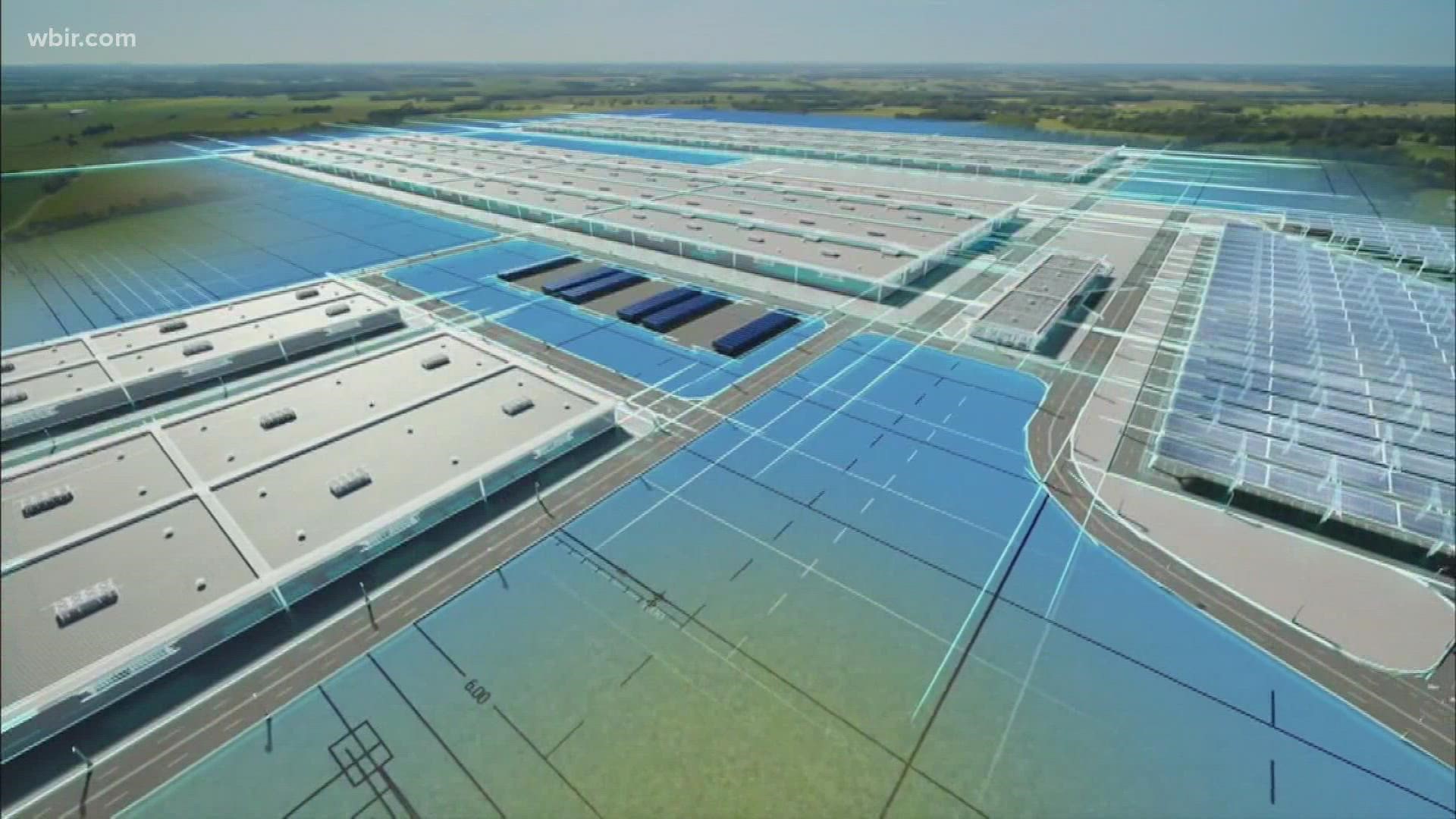NASHVILLE, Tenn. — Update (October 18, 2021): Governor Bill Lee on Monday introduced two new pieces of legislation at the start of a special session that kicked of Monday evening to approve and facilitate Ford Motor's $5.6 billion "Blue Oval City" megasite in West Tennessee.
The governor introduced SB/HB 8002 and SB/HB 8001. Combined, the bills will provide additional state funding toward improving infrastructure at the megasite through a $500 million capital grant, and establish a Megasite Authority in West Tennessee to provide services for operation and development.
House Bill 8002 will also allow the state to build, own and operate three different structures to support the megasite-- including a new $40 million campus for the Tennessee College of Applied Technology to train the workforce, a water and wastewater system, and a second interchange on I-40 to improve traffic flow in the area.
House Bill 8001 establishes the Megasite Authority, which would be attached to the Department of General Services and develop, operate, manage, incentivize and promote the megasite. It would be governed by a seven-member board of directors.
Gov. Lee announced in September he would calling a special session of the Tennessee General Assembly on October 18 to approve the investment for Ford Motor Company and SK Innovation.
Ford and SK Innovation announced last month it will invest $5.6 billion to build a 3,600-acre mega campus called Blue Oval City at the Memphis Regional Megasite where production of the next generation all-electric F-Series trucks will begin in 2025. The project will result in the creation of 5,800 new jobs in West Tennessee.
Blue Oval City will be the largest, most advanced and most efficient automotive production campus in Ford’s history. The campus will include the Ford assembly plant, a supplier park and a battery manufacturing plant operated by BlueOvalSK, Ford and SK Innovation’s joint venture. The site will become a vertically integrated ecosystem with key suppliers and battery manufacturing on the same campus where Ford will assemble next generation all-electric F-Series trucks.
Lee said during the announcement that he intended to call a special legislative session this fall to address funding, buildout and oversight for the Memphis Regional Megasite.
“Ford and SK Innovation’s investment will be transformational for West Tennessee,” Lee said on Thursday.
Lee also announced Thursday that he planned to extend his executive order that allows parents to opt-out their children from wearing masks inside schools.
“While we have business to do in the legislature, we will continue to stand up for parents in court,” Lee said. “I am renewing my mask opt out order and will work with the attorney general to challenge the federal rulings that inappropriately legislated from the bench.
“The special session on Oct. 18 will stay focused on next steps for the Memphis Regional Megasite, and we’ll stand up for parents in court.”
Judges in all three districts in Tennessee have blocked Lee’s order allowing families to opt out of school mandates.
Last Friday U.S. District Judge Waverly Crenshaw ruled in favor of a Williamson County family who had filed a lawsuit in federal court in Nashville. Crenshaw’s order only applies to Williamson County. Earlier Friday, an East Tennessee federal judge halted Lee’s executive order in Knox County. A week prior, another federal judge in West Tennessee indefinitely banned Lee’s order after families argued the governor’s executive order endangered their children.
All three lawsuits claimed that Lee’s order violates the American with Disabilities Act, which prohibits the exclusion of students with disabilities from public educational programs and activities. Children with certain disabilities are move vulnerable to serious illness or death if they get COVID-19, the U.S. Center for Disease Control and Prevention has said.
“Based on the record before the court, due to the rise in COVID-19 cases in Williamson County, including at plaintiffs’ schools, along with a significant number of students who have opted out, plaintiffs have likewise been denied access to a safe, in-person education experience,” Crenshaw wrote in his 18-page decision.

